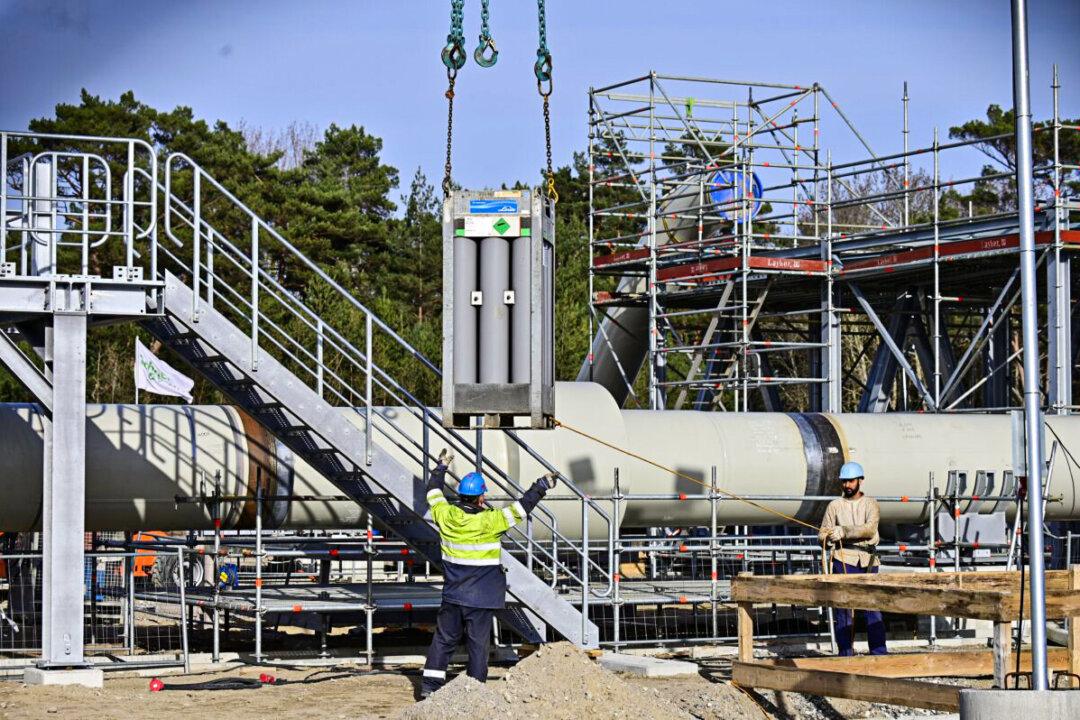Germany’s energy market regulator announced on Nov. 16 that it has suspended the certification process for a major new pipeline connecting the country and Russia, after ruling that its operator within Germany doesn’t comply with conditions set by German law.
The Bundesnetzagentur said it temporarily halted the certification process because the Swiss company behind Nord Stream 2 had decided not to turn itself into a German company, but had instead created a subsidiary under German law to deal with the section of the pipeline on German territory.




